
Currently showcasing his solo exhibition “Il Trovatore” in Munich at PFEUFER38, Meng Zhou delves into the delicate balance between nature and art, reflecting on global shifts and personal exploration.

When did you start being interested in art?
I was always interested in doing doodles or drawings, and I was also interested in nice objects, but in school, I learned how to do stuff, so the whole production process. I come from China, and the school regime there is very connected to politics, which is also very interesting. Later I studied at the Royal College of Art; back then I was hosting salon events that we liked to call speed curating; it was an effective way for young artists and curators to connect easily. When the right group team up, their voice can be even stronger.
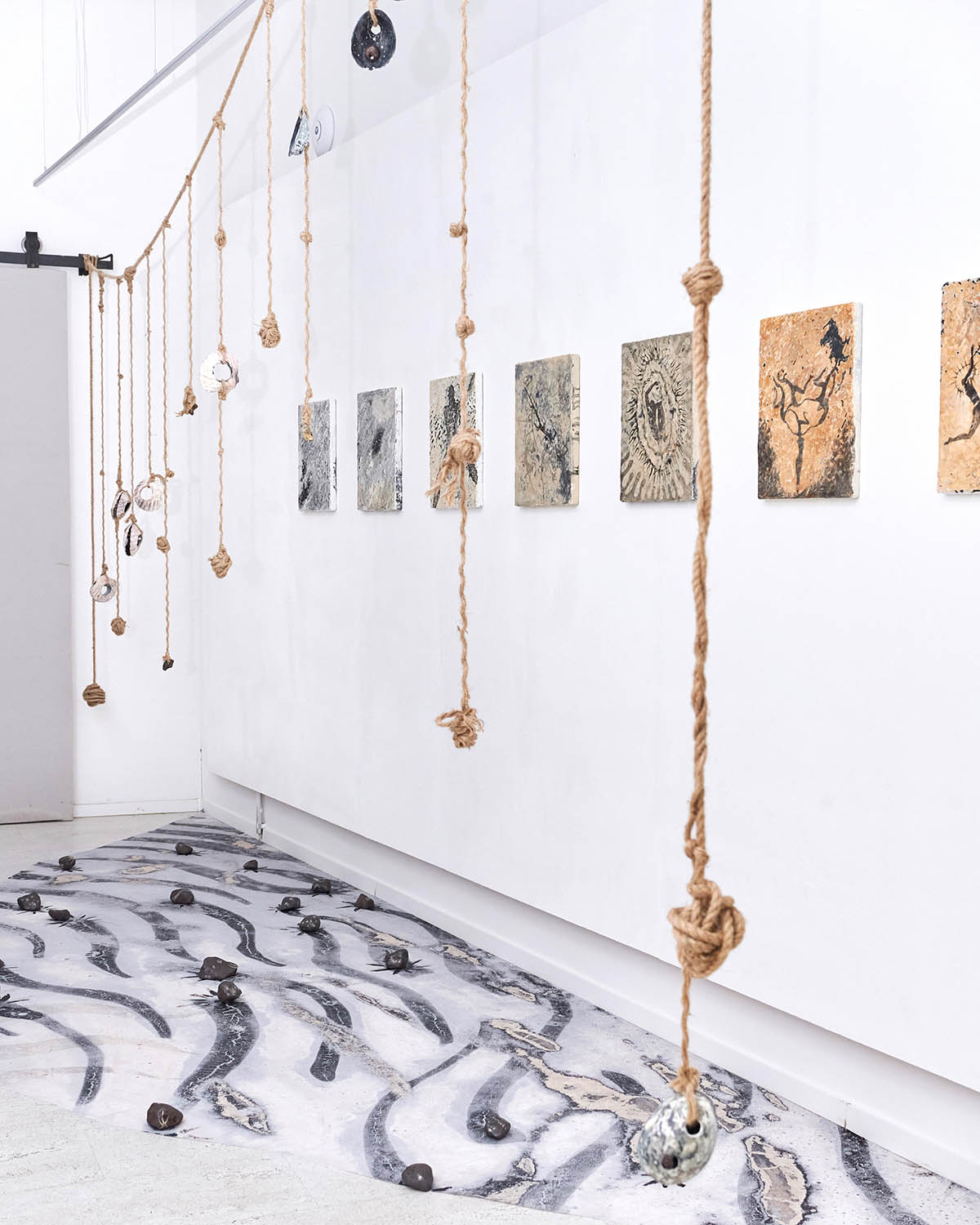
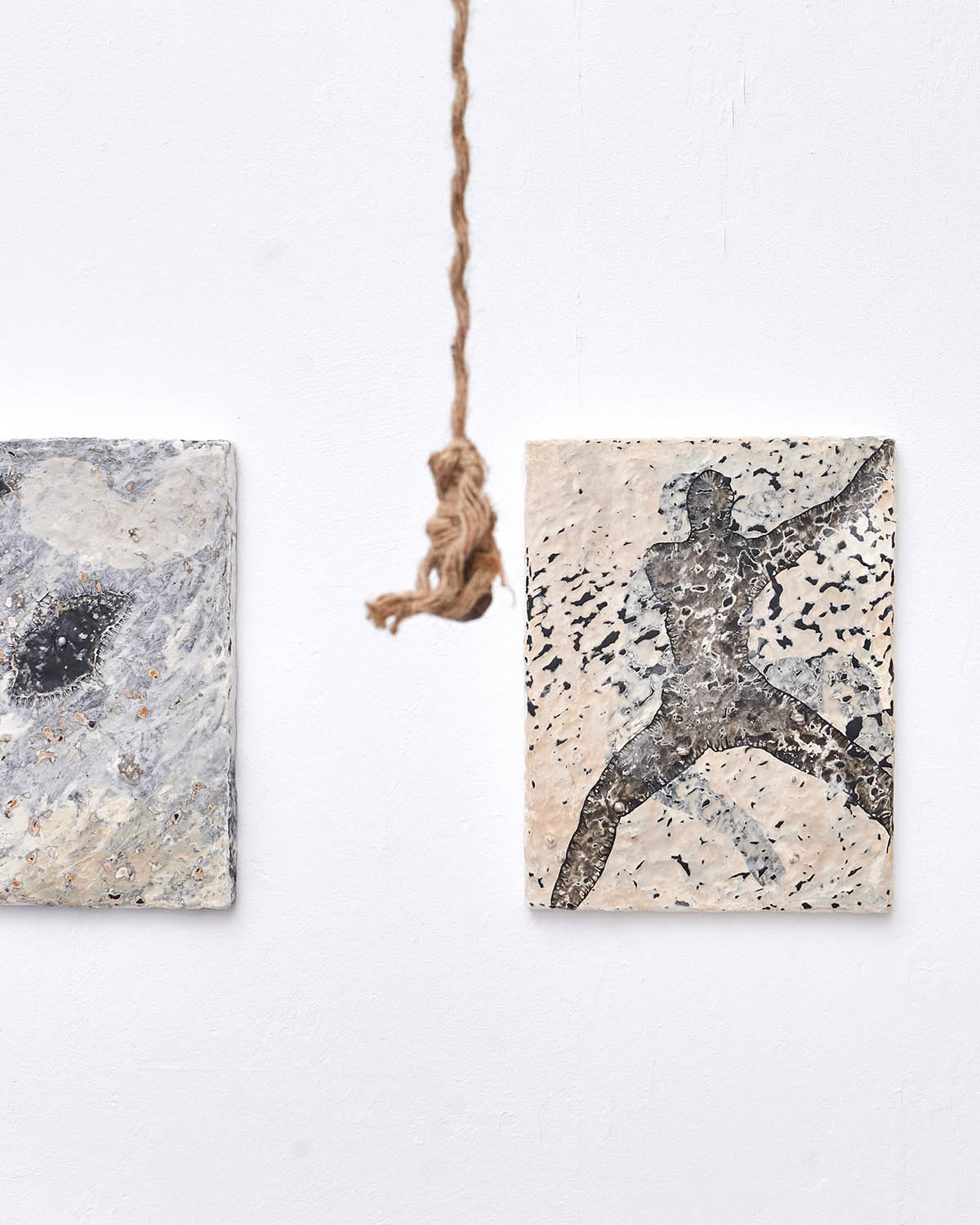

How was studying in London, UK? Do you remember your first day in London?
I moved alone to London from China; I remember my first days were a bit shocking. I vaguely remember the first stage of my living there and coming to college, but it was difficult because it was my first time being far away from my family. At this time of studying, fewer people are thinking about the future; they more think about what is now; everything is focused on the present. The moment you realize the university days will be over one day, you start applying for grants and residency exhibitions, and most of the time you are rejected, but sometimes you are accepted, and this is where your future steps are making progress. I believe social media is a tool for connecting with others and finding opportunities.
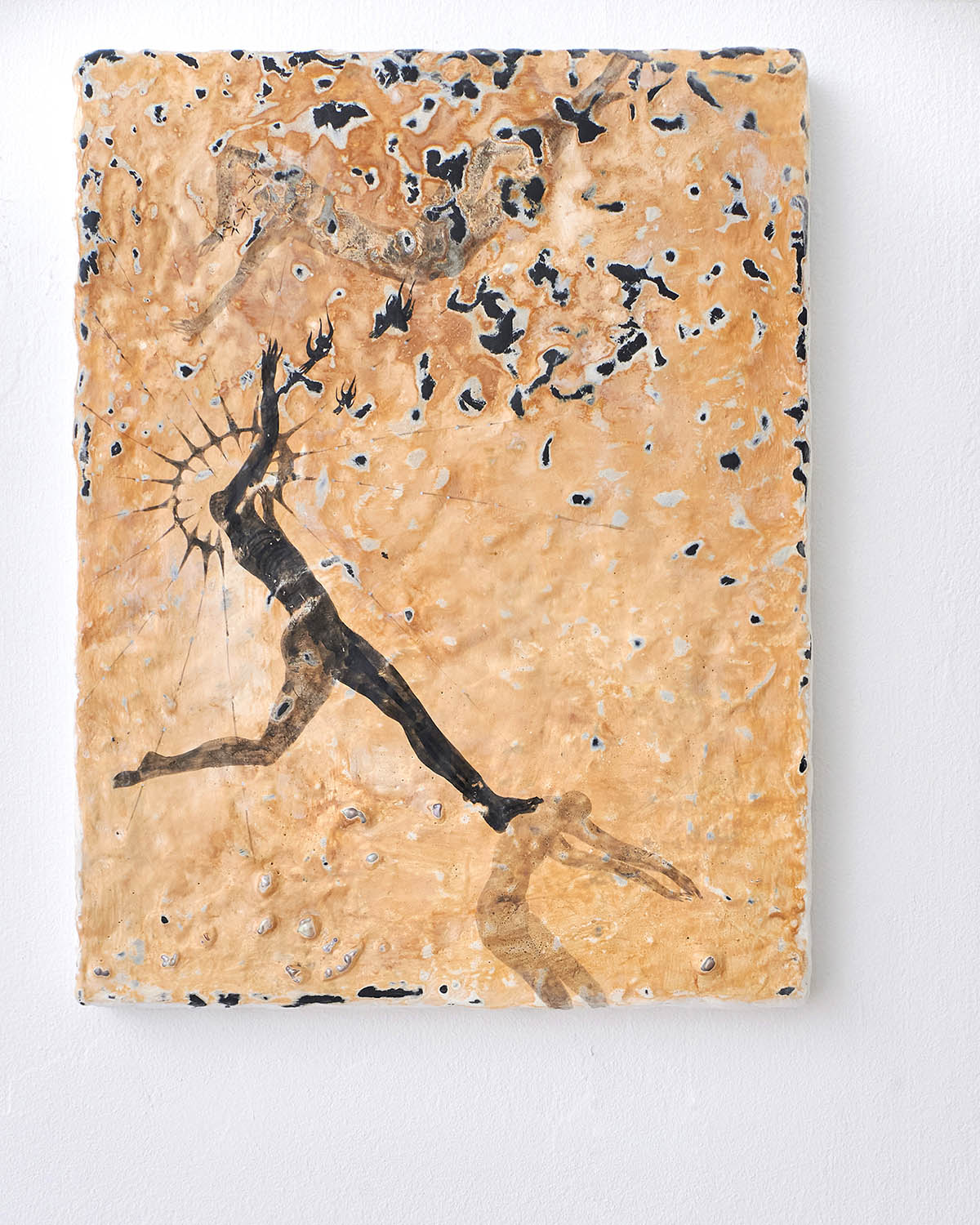
What are the challenges in production processes for you?
Storage space is a big problem because when you are doing large-scale work, you should be sure that you have somewhere to store it for a long period. I think it is challenging also that in the art world, there are often no contracts and regulations, everything is based on proposals and verbal deals, and this can be problematic. Also, the range of the material prices in Europe is outrageous; it can vary in 5 different price ranges, and for me, it is important to have materials coming from the local context as much as possible. In the process, I am always working back and forth because I am working with natural materials.
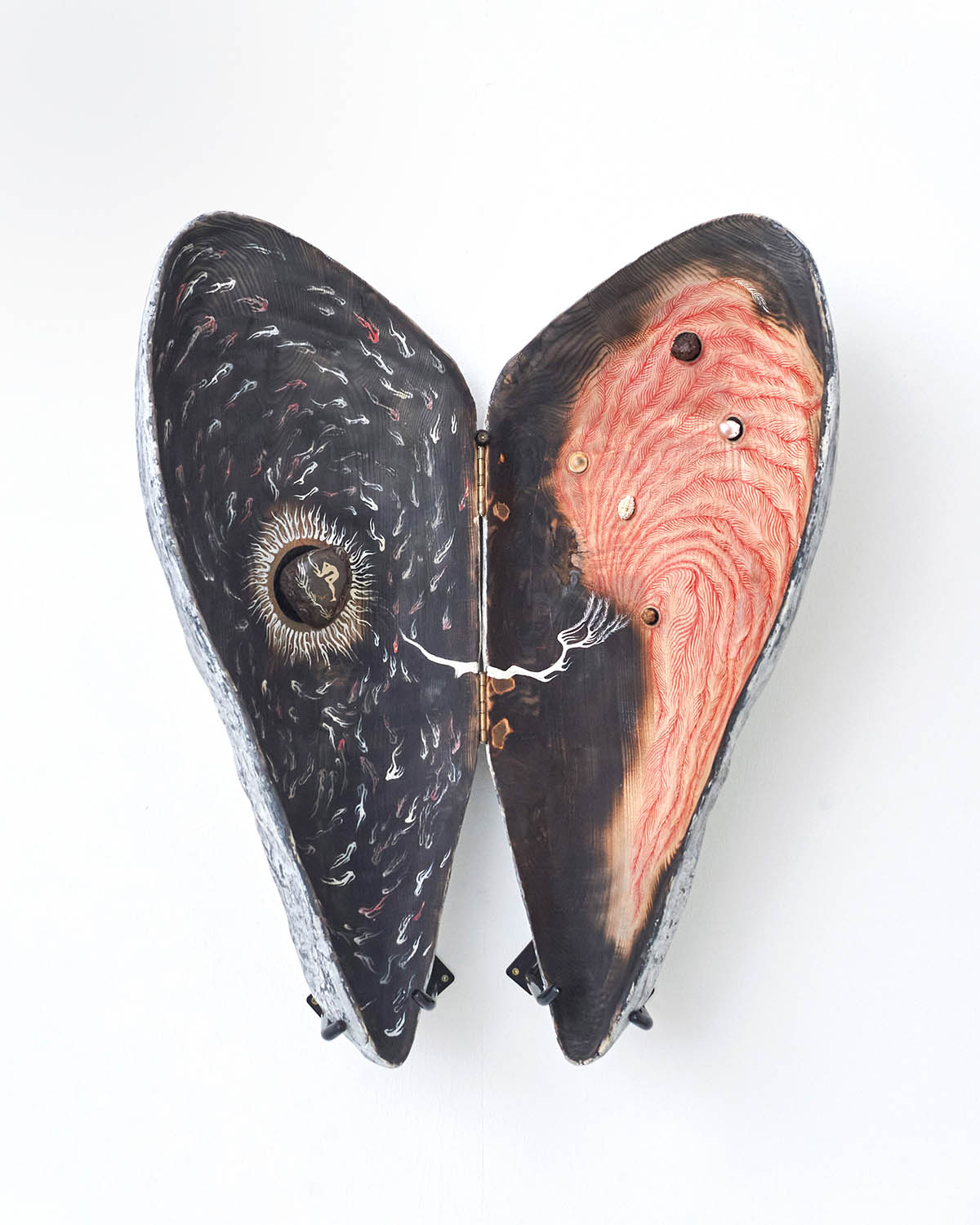
Tell us about your solo exhibition.
For me, it was difficult to tell a local story here in Munich; I couldn’t force the connection with the locals, but I did travel a lot, so I showcased the impressions, feelings, and stories I collected from my journeys. I feel after the pandemic, the world became more separate, and “antiglobalism” is happening. My objects represent philosophies originating from the other side of the world.
What can we see in the first room of the exhibition?
There are more fantasy elements here, allowing the viewers to create a surreal landscape within the space. The blackness on the wood is from burning processes, it is not paint. The damage was my brush in here. I like to address them as my brush because time and history are adding layers to every object. Nothing can have the same condition forever.
Can you tell me something about the work we’re about to face?
I hope you don’t mind British humor, a lot of critics are pointing out on my drawings, that they are not enjoying them or at least some parts. So I started placing a curtain on them, so if you don’t want to see some parts of the drawing, you don’t need to see them. You can cover the parts you don’t like; I don’t mind.
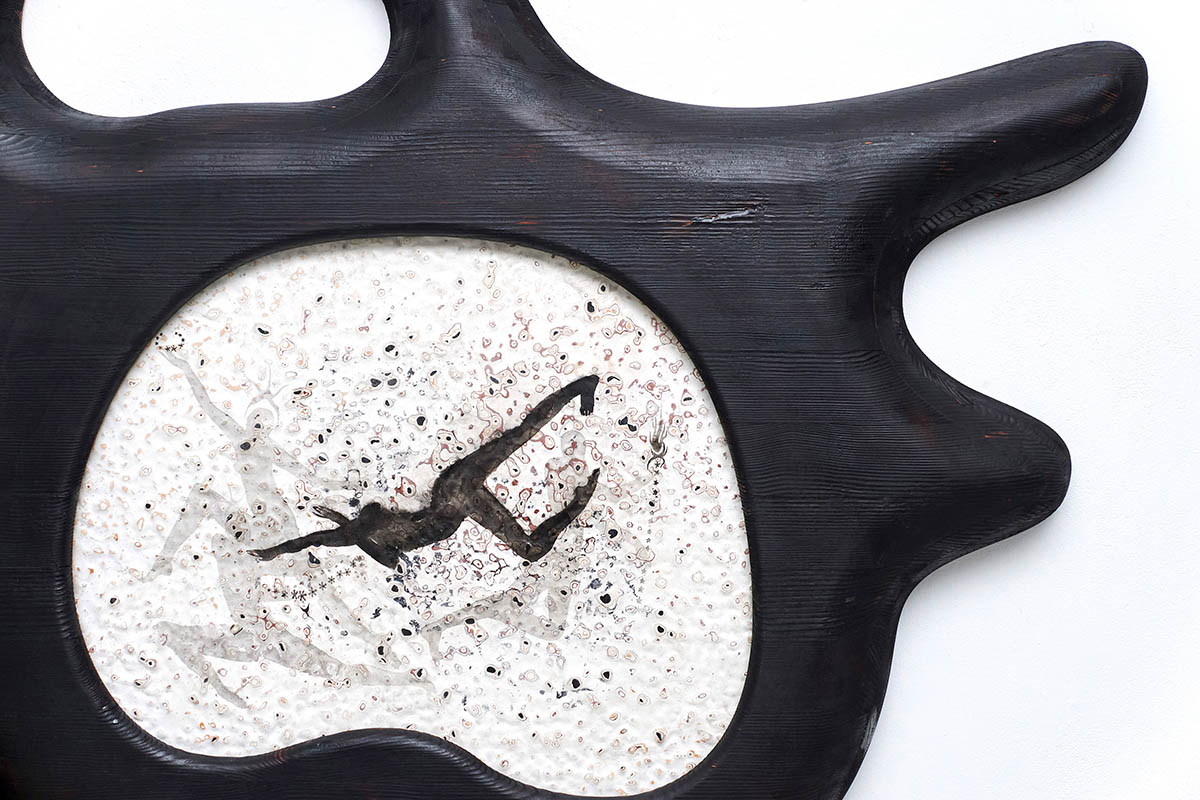
Materials that are objects made out of as well?
Sculptures are mimicking negative spaces. Resin, and on the top coat is mineral powder and animal gelatin, and the finishing is insect wax. When there is a negative space, nature is formed, depending on the angle you see the objects, you can recognize the emotions that they are representing, sadness, anger, and happiness.
For your work, it is also important that the viewer engages with the object and explores it.
Yes, that’s why I am making it sometimes complicated so that I can get more engagement. Not all the things are easy to explore. I like it when my works are more accessible, and there must be no distance from there, as it is with works of art in general.
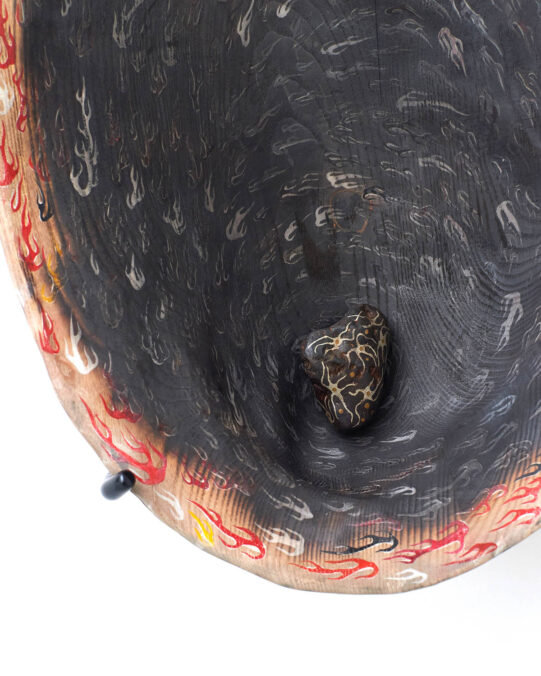

Can you explain the process of combining the materials?
Last year I was in Japan, starting to make wooden masks. I learned this old tradition. Also, ink is a delicate and fragile material. It has ancient drawing quality. Then I became interested in phosilis and shooting stars and how these materials are unified in one object. I like this burning effect, and it is quite fascinating to me. It is dangerous but full of possibilities. It represents the end and the beginning at the same time. Mother of Pearl is as well very special because it is almost a process in which an animal gives birth to a stone. When you are drawing a human next to a very abstract natural form, the human will be dominating it, and that’s why it is always a play in decision, how much I show and how much I hide.
The stones we see in the exhibition you made or?
The stones are natural meteorites.
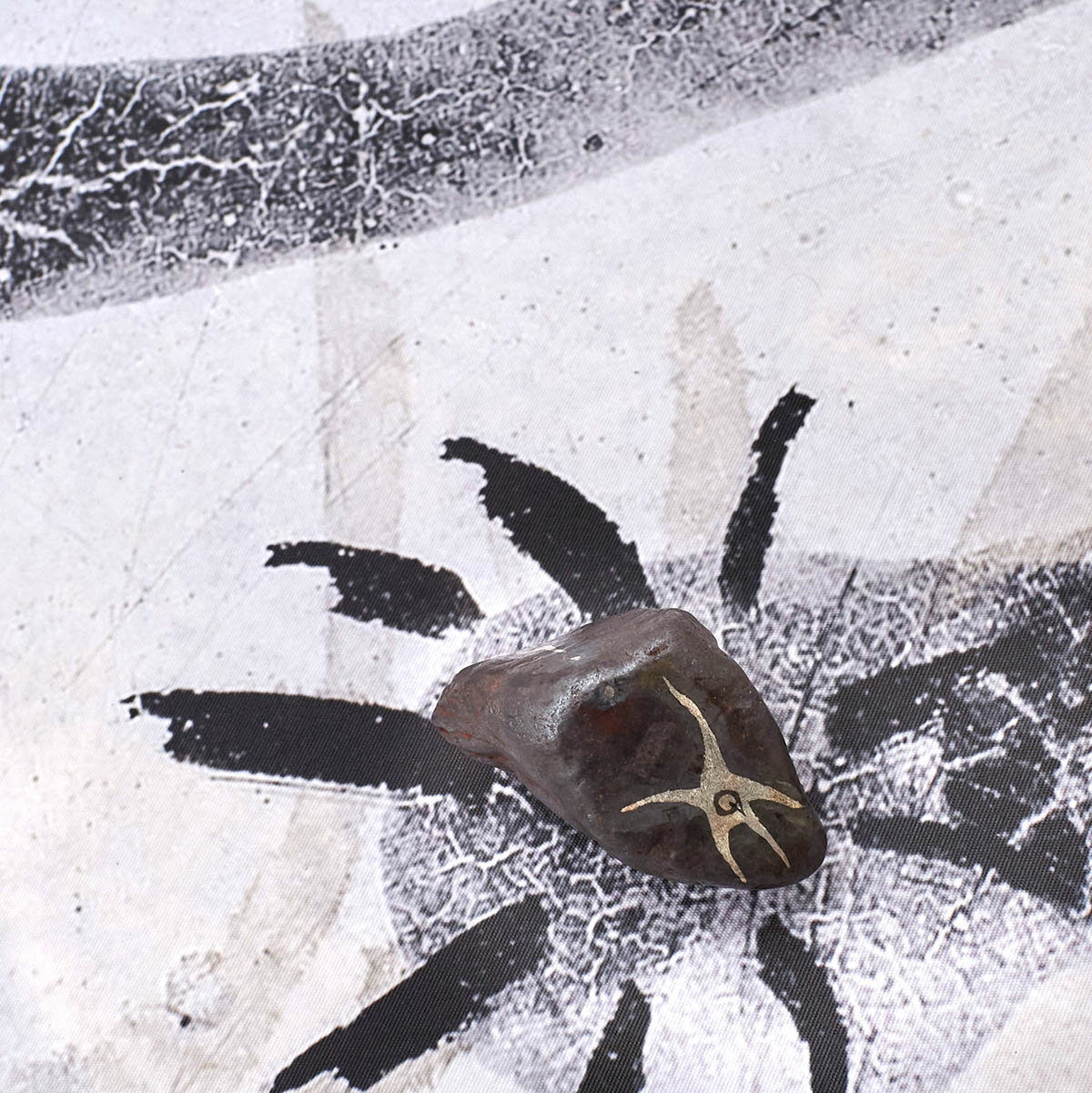
How do you find a balance between this abstract and more figurative work?
I like watching performances a lot; it, as in the image, doesn’t need to be a lot of talking, and it is more of a language of signals. Also, as in prehistoric cave paintings, everybody understands them; they are self-explanatory; it is not about the style; it is about the message. This is what I try to do to spread a message. But sometimes I like to make something less about humans and more about nature or feeling itself.
The symbol of the hands is very present in your work, how do you read it?
It could be two ways; one is more religious, and the hands in Buddhism mean—no fear—for going forward, for taking risks, and for going out of your comfort zone. Or it could be an elegant hand from a fisherman.
During what period did you create the artworks we can see in the exhibition?
All of them are made this year.

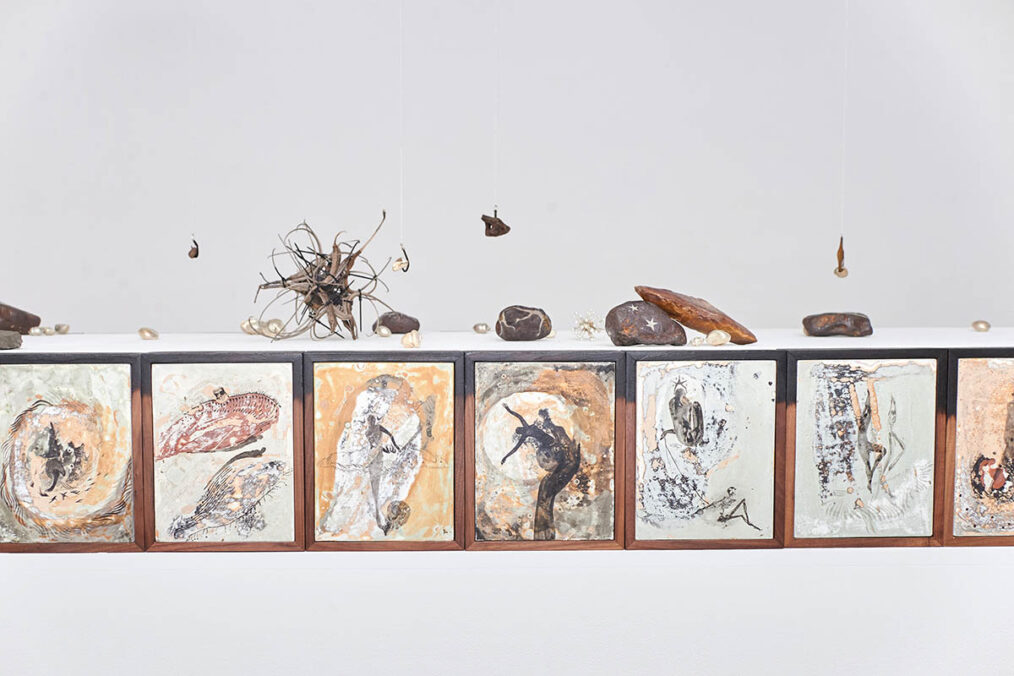
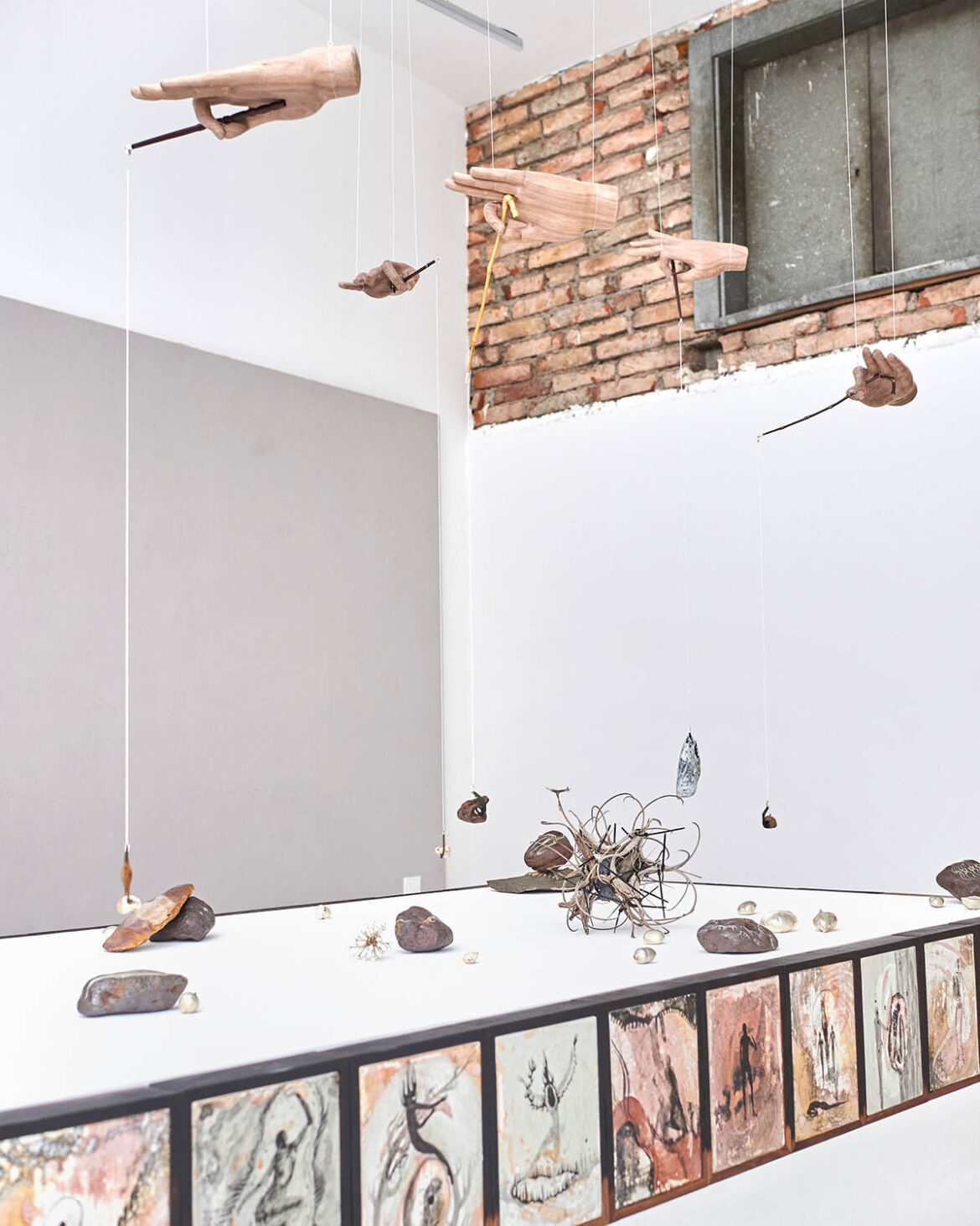
How have mythologies and folklore influenced your creative processes?
It is hard to say; there are myths I am working with, such as one that describes a transformation from a stone to a living entity. Yes, in my work there is always this element of story, especially Asian mythology, that is blending into materials. I want people to imagine their own stories when looking at my works.
Do you remember your last dream?
Probably from last night, I dreamt I missed the train to Berlin.
Are you collecting something?
Yes, a lot of shells, so I make my own out of wood with engraved objects inside. In ancient Asian cultures, shells were used as coins and currency, and people used to make a hole in the center of it so they could carry it as money. This was also a part of the concept for the exhibition, to see the floor plan and the way it works as a map for collecting treasures.

What are you doing when you are not making art?
I love watching animation and also going to the theater. In London, there are a lot of contemporary dance theaters, and every February there is a Pina Bausch group visiting, and there are phases where I go and watch every day. This year one show from Pina Bausch was shown for seven nights, and I watched it for six nights, then I got sick, but if I didn’t, I would watch it for the seventh time as well. I also play video games.
The exhibition Meng Zhou – Il Trovatore in Munich is a collaboration with Blue Mountain Contemporary Art and Nan Ke Gallery, representing Meng Zhou’s work.
Exhibition: Meng Zhou – Il Trovatore curated by Alexandra Grimmer
Exhibition duration: 13 September – 11 October 2024
Address: PFEUFER38, Pfeuferstraße 38, 81373 Munich, Germany
Blue Mountain Contemporary Art www.bmcaart.com,
September 27, 2024



